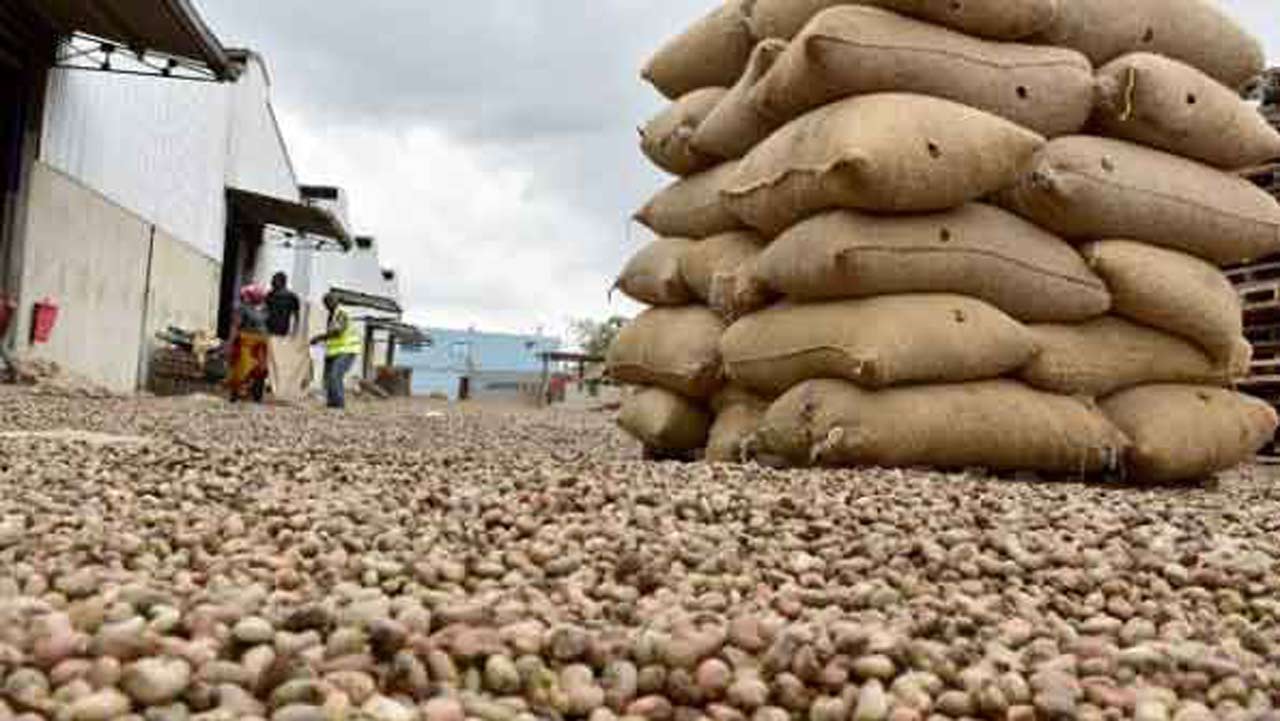 With the successful introduction and implementation of the cashless policy, which culminated in Mobile Money Operation (MMO) in the country, the Central Bank of Nigeria (CBN) is now targeting the unbanked segments of the society with the introduction of agent banking.
With the successful introduction and implementation of the cashless policy, which culminated in Mobile Money Operation (MMO) in the country, the Central Bank of Nigeria (CBN) is now targeting the unbanked segments of the society with the introduction of agent banking.
Agent banking is the delivery of financial services outside conventional bank branches, often using non-bank retail agents and relying on technology, such as card readers, point-of–sale (POS) terminal or mobile phones for real time transaction processing
A banking agent is a retail or postal outlet contracted by a licensed deposit taking financial institution or a mobile money operator to provide a range of financial services to customers.
According to CBN, which released the guidelines, the novel banking system is aimed at enhancing financial inclusion, as banking agents are expected to act as delivery channels and to offer banking services in a cost effective manner.
Under the guidelines, any financial institution that intends to engage in agent banking will have to apply for approval, stating the extent of agent banking activities and responsibilities of the relevant parties.
The apex bank said in its guidelines that the bank applying to engage in agent banking should attach to their application, a copy of their board approval, outlining the strategy of the financial institution, including current and potential engagement, the geographical spread and the benefit expected to be derived from agent banking venture.
The applicant, it said must show proof of competence in the operation of agent banking, integrity and the extent of its outreach. Also, the banks are expected to provide the service level agreement, agent banking contract, the risk management, internal control mechanism, operational procedures and the proposal for Know –Your- Customer (KYC) and anti money laundering and combating Financial Terrorism (KYC\CFT) compliance.
Under the agent banking arrangement, a financial institution may engage super agents, that is the agent networks that will establish a collection of outlets or franchise within its wide network of outlets to be under its supervision and control. The bank can also engage sole agent, meaning the agent who does not delegate power to other agents, but assumes the agent banking relationship by itself. It can also engage a sub-agent, which is the network of agents to be under the direct control of super agents as may be provided in the agent banking contract.
The Central Bank said any approved bank agent are only allowed to perform limited banking operation on behalf of their principal, including account opening, fund transfer; deposit and withdrawals; bills payment; payment of salaries; balance enquiry; generation and issuance of mini statement; cash disbursement and cash repayment of loans; cash payment of retirement benefits; Cheque book request and collection; collection of bank mails for customer and other activities to be determined and approved by the CBN.
To qualify as an agent for specific banking operations, on behalf of deposit financial institution or mobile money operator, it must be an entity that have been in a legitimate commercial activities for at least one year before the date of the application and that the business must be a going concern.
For effective management of the agent banking business, the CBN said the financial institution must develop and implement an agent banking strategy, besides establishing an effective oversight over agent banking services, manage their oversight by reviewing and approving key aspects of their security control programme, processes, policies and infrastructure
In order to monitor the approved banking agents, the CBN said under no circumstance should an agent relocate or close down it premises without informing the financial institution it is representing.
To put them under close surveillance, in order to minimize the risk involved in the system, the CBN made it mandatory for the financial institutions to monitor and supervise the activities of the agents, equip itself with the information relating to the number and volume of their transactions, monitor their effective compliance with set limits and established prudential measures in each case; implement measure to control operating risk; periodic physical visit by staff or authorized persons to ensure they operate within the requirement of the law, guidelines and contract, pay special attention to their operational risk, legal risk, liquidity risk, reputation risk and ensure their compliance with the rules for combating money laundering and financial terrorism
Not withstanding the credibility of the agent, the CBN urged banks and other financial institutions to conduct due assessment of agent’s credit worthiness and set limit structures on their activities commensurate with the assessment.
NOT too many banks have adopted the agent banking system and members of the public are yet to be educated about the new innovation aimed at expanding banking services on wider scale in the country
One of the banks that had already keyed into the agent banking innovation, by the CBN, is First Bank of Nigeria, which said 13,000 of its agents are currently in operation nationwide.
The bank’s head of Mobile Finance Services, Mr. Mike Ogbalu said the bank was in the process of rolling out its agency banking services to serve its numerous customers.
“First Bank is in the process of rolling out its agency banking services to serve its customers. Indeed, it is a critical element of our retail strategy. We currently have over 13,000 agents serving our mobile money operators and providing cash in, cash-out, enrollment services and indeed other financial services,” he said
He enumerated the challenges associated with the new banking system as the huge cost of agent building, especially in the rural areas, management of liquidity at agent locations, the unreliability and high cost of Telco infrastructure, among others
Authoritative source at Sterling bank said it was the first to key into the agent banking initiative of the CBN, adding that the new banking model was first launched by the bank at Makoko area of the Lagos metropolis
According to the source the bank now has 600 agents, out of which only 400 are active as they keep on servicing their account with the bank.
“We were the first to launch agent banking in Nigeria. We first took it to Makoko village and as at today we have 600 of them all over the country, although only about 400 of them are active because they are funding their account to transact businesses. The agency banking is about making additional income by the agents. They are mostly in the rural areas. They are known to the people and the people trust them too,”
One of the agents in Ikorodu said he got his accreditation to represent Sterling bank about a year ago. Although she refused to disclose her name for security reason, she claimed to have overwhelming patronage.
“People here are doing it like daily contribution. They compel themselves to put in something into their account everyday, no matter how small. Instead of patronising the Esusu people, they come here to make deposit, because my house is here and I cannot run away. I don’t retain their money and I do close on time so as to take whatever I collect to the bank. Sometimes, I use their money for my other business and ask the bank to debit my account in order to credit their account. The commission I receive from this business is enough to pay one of my children’s school fees in secondary school. You cannot do this business without knowledge of IT”.
At Makoko, where the rural banking initiative was first launched, traders said the pioneer agent has not been coming to attend to them everyday. At Asejere market, also in Makoko, traders said they were enjoying the banking services of an agent, who comes for transactions, while the new agent designated for them is undergoing training, being organised by Sterling bank.
“Initially, we had a designated agent from sterling bank that stopped coming and was eventually replaced with another agent, who comes to collect deposit on Wednesdays. FCMB also came to create awareness about agent banking, but it is yet to get space at the market, even after making us to open account with them.
I have an account with Diamond bank, but the agent made it easier for me, since our market is far from banks, said Mrs Oladimeli Bolaji, a soft drink seller, who appealed to the agents to make a daily appearance so that deposits and withdrawals can be done daily.
The Iyaloja of Asejere market, Alhaja Modupe Kaosare Adebayo said, “agent banking is a relief to traders. We have never had issues because we receive notification of payment immediately we make deposit from the bank, which shows they are genuine”.
The CBN Director of banking and payment, Dipo Fatokun said he was satisfied with the level of financial inclusion and payment system delivery in the last one year.
Fatokun, who spoke on the need for new banking innovations in view of the growing population of the country, said there was need to strategize in order to enhance financial inclusion, adding that it would help to capture the unbanked
“ Going by the CBN projection that come 2020, the number of bank branches would increase from 5,797 to 10,000, the big question on everybody’s lips is whether the number will be enough, considering the fact that the nation’s population, which is presently put at over 160million would be expected to be over 200million.






